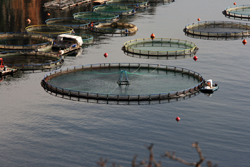Streamlining aquaculture
The EU has made significant changes and improvements to aquaculture across Europe, and the time has come to assess the progress of new practices and polices introduced in recent years. Much of this progress happened during the EU's Fourth and Fifth Framework Programmes (FP4 and FP5, respectively). The EU-funded project Impact FISH evaluated these practices and policies to support future evolution in the sector and reform the EU's Common Fisheries Policy (CFP). The project outlined the EU's objectives in the fisheries, aquaculture and seafood processing research areas, comparing outcomes and improvements between FP4 and FP5. This included project inputs and outputs, as well as consortia makeup, technologies and dissemination of knowledge. Impact FISH also consulted with stakeholders such as small and medium-sized enterprises (SMEs) and industry players, including fisheries development agencies and aquaculture associations, to identify benefits, limitations, successes and failures. It tested and developed a questionnaire that would help gather the results and yield a clear picture of all the EU initiatives in the sector. Once these valuable findings and conclusions were consolidated, the project aimed to articulate a set of recommendations to the European Commission. Several important findings emerged from the project, such as communication weaknesses among stakeholders and with respect to dissemination of research results. Impact FISH also gleaned insight on better fisheries management, sustainability effects of research, environmental benefits and perspectives of non-governmental organisations (NGOs). The project deduced that more communication tools are needed, particularly online initiatives. It noted that further impact assessment should involve data from organisations such as the International Council for Exploration of the Seas (ICES) and the International Council for the Conservation of Atlantic Tunas (ICCAT). All these assessments, recommendations and findings are set to upgrade the aquaculture and fisheries sector in Europe considerably.



